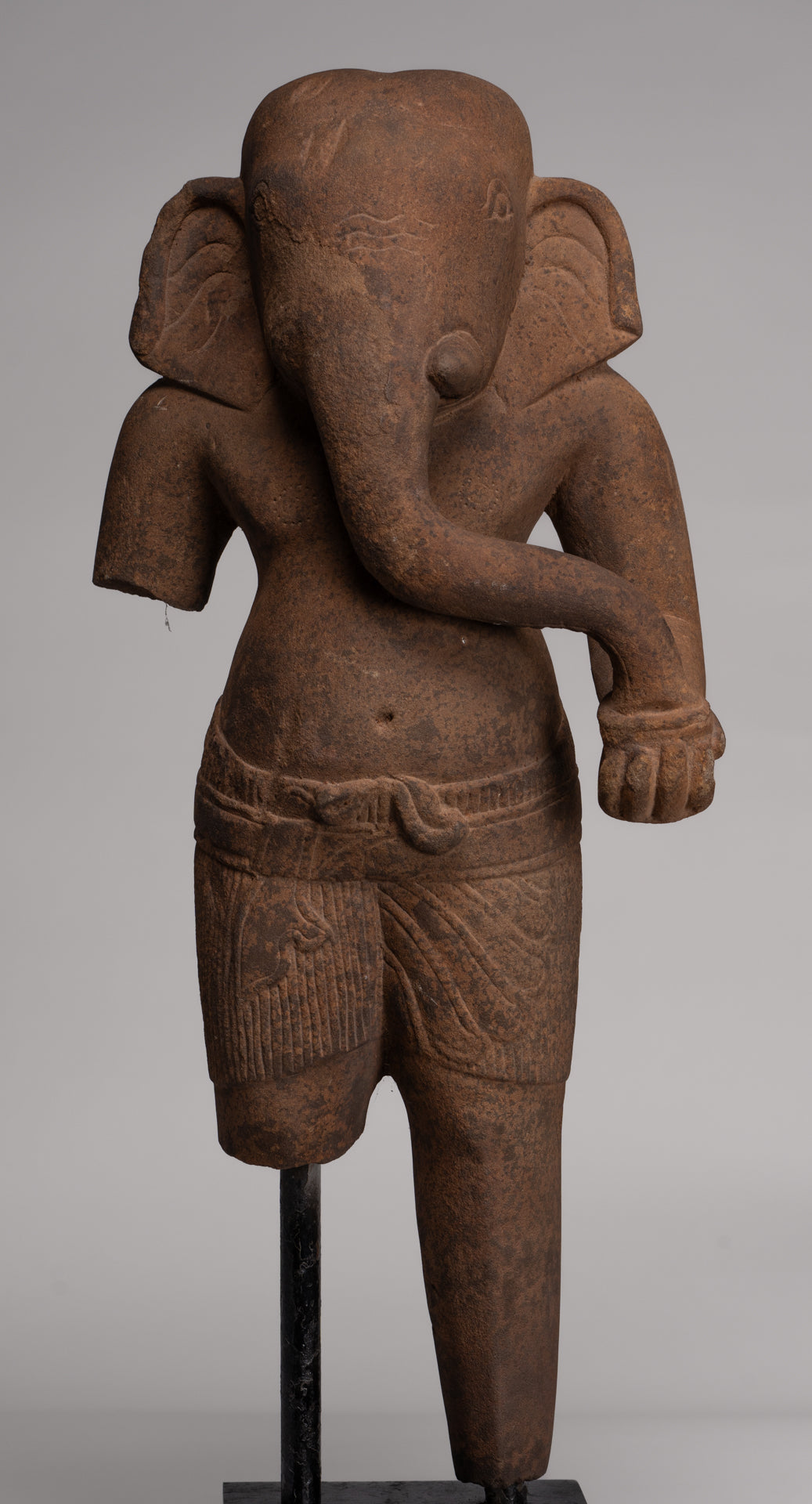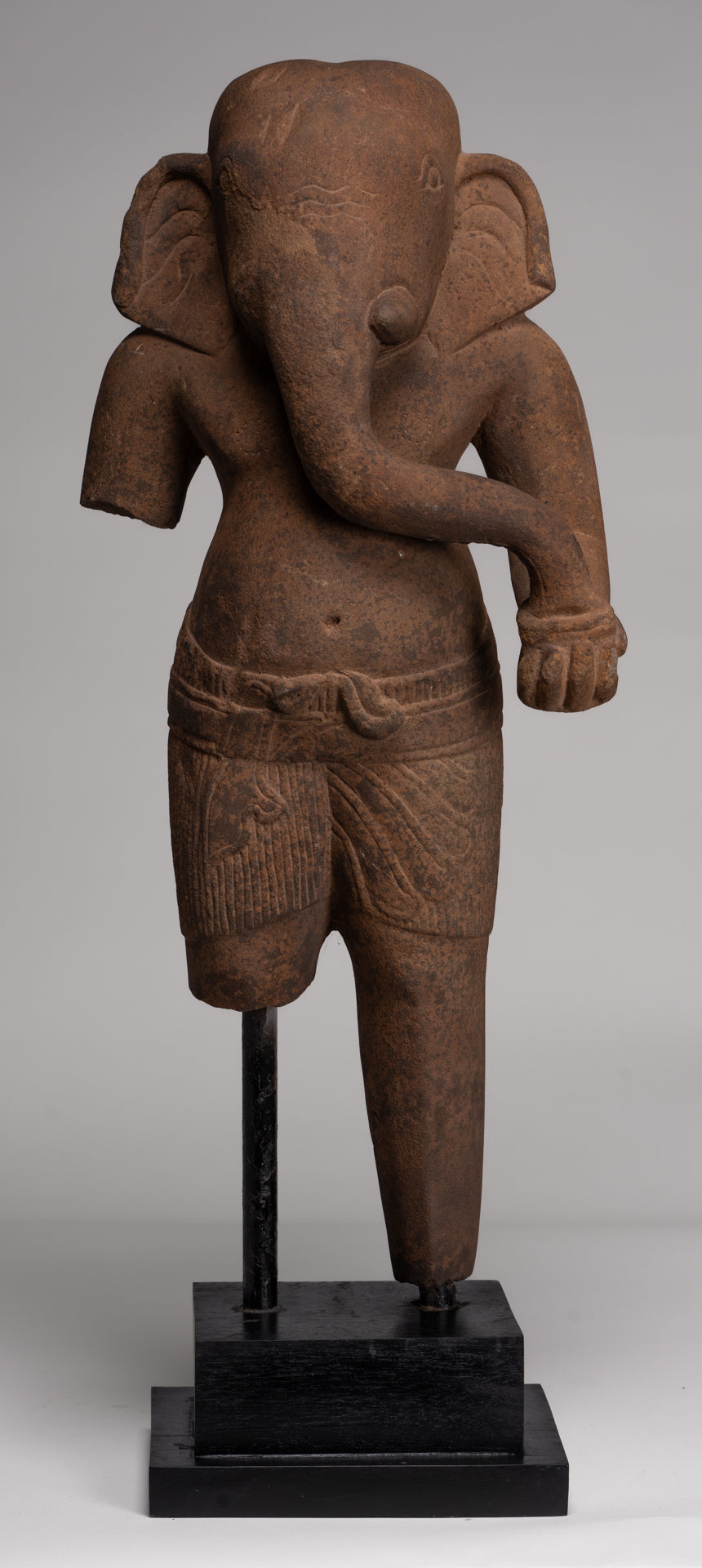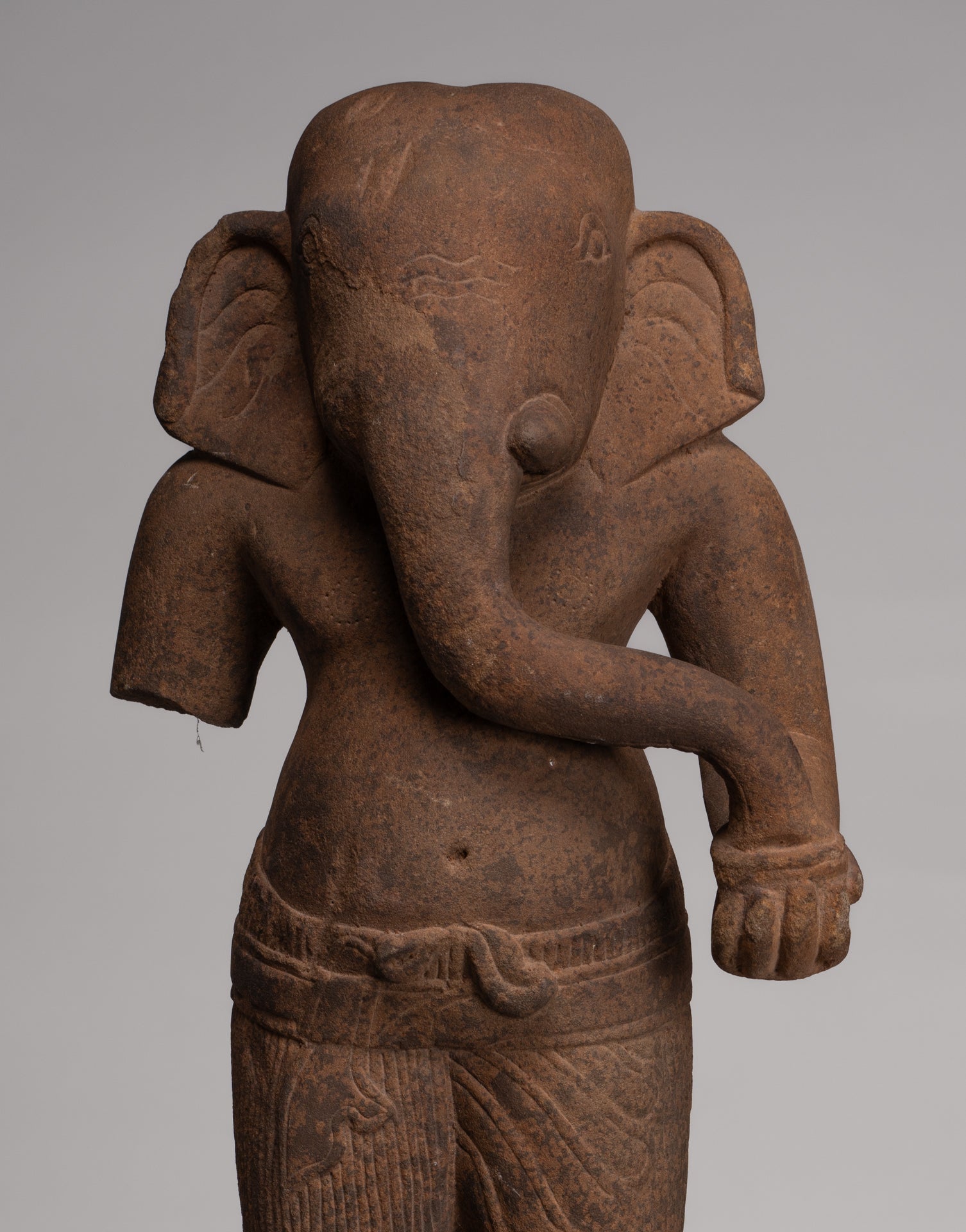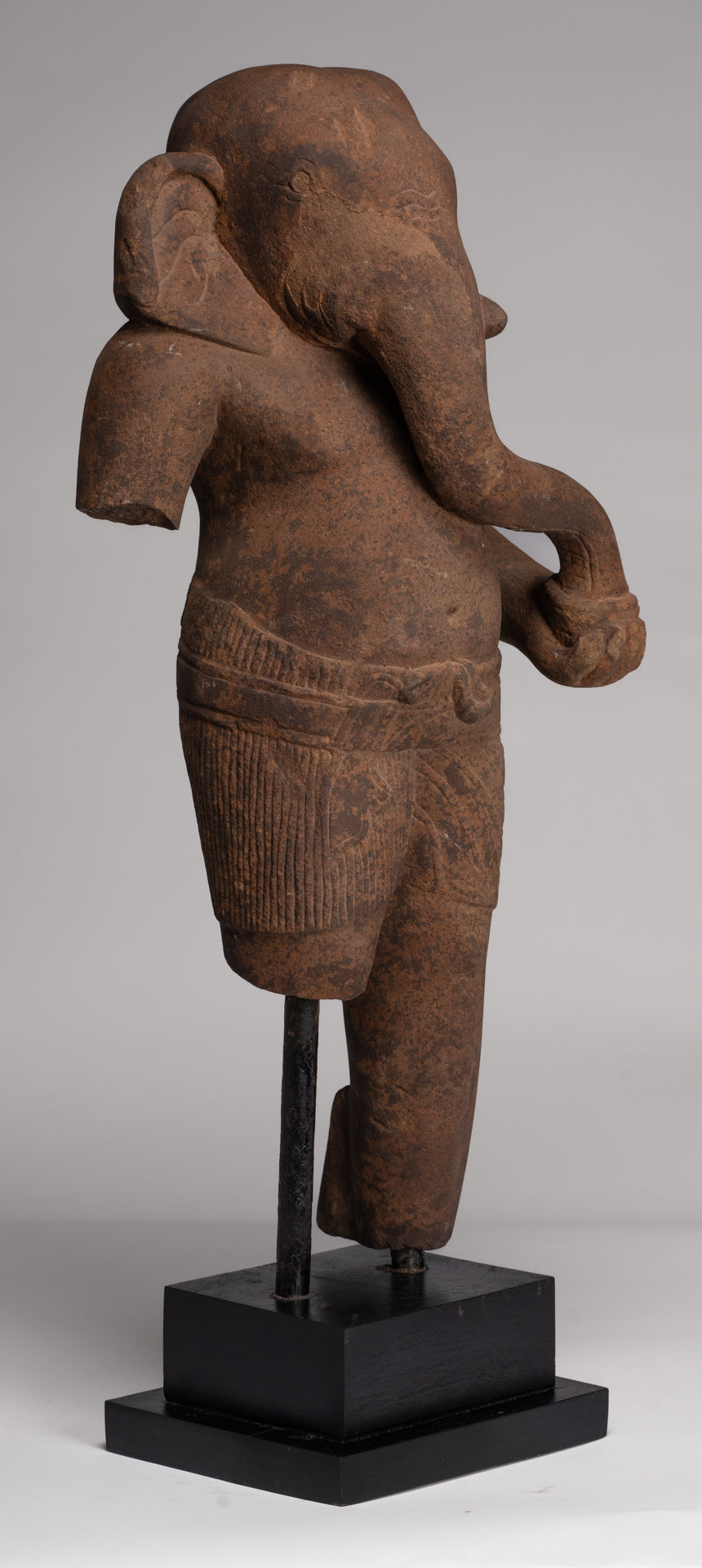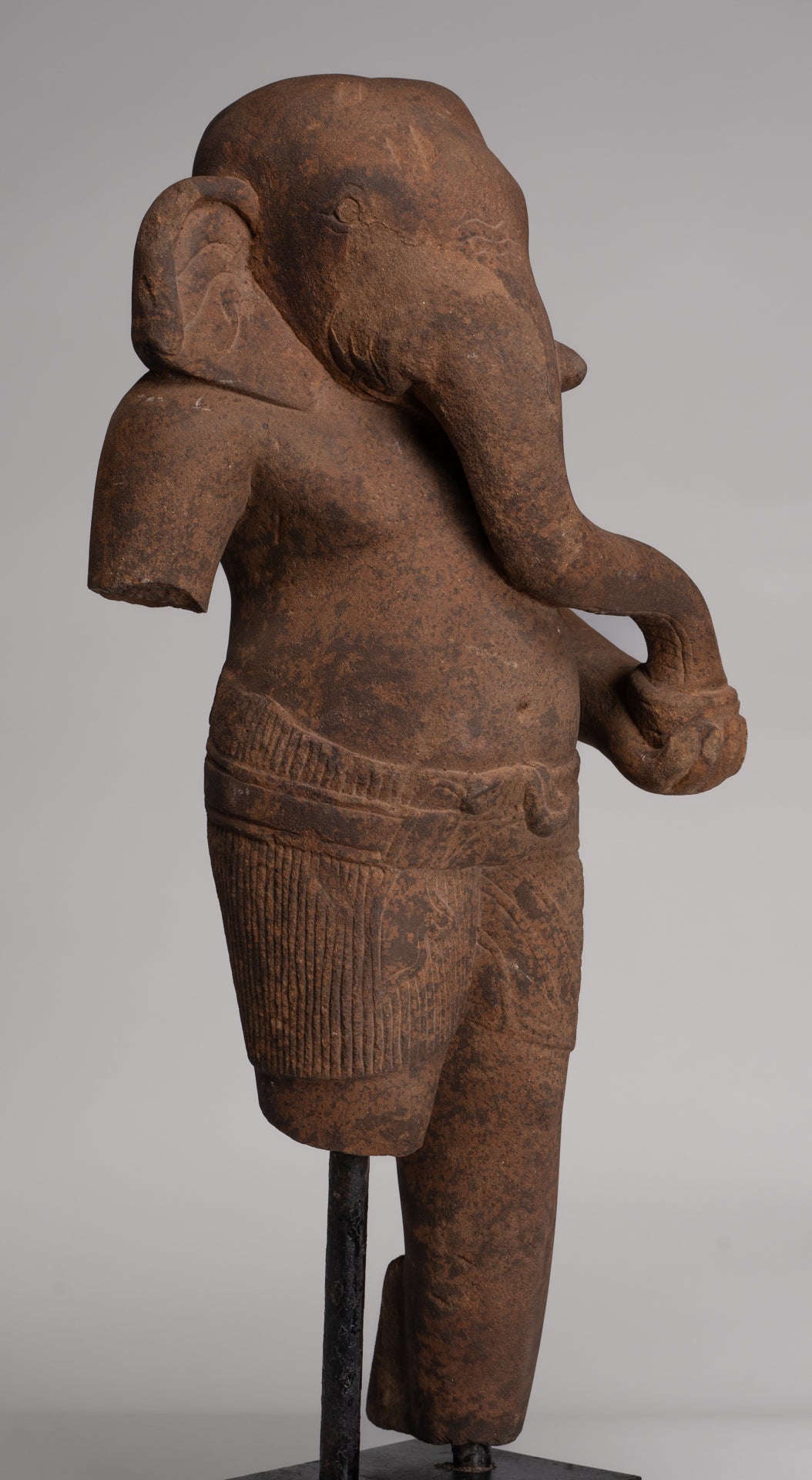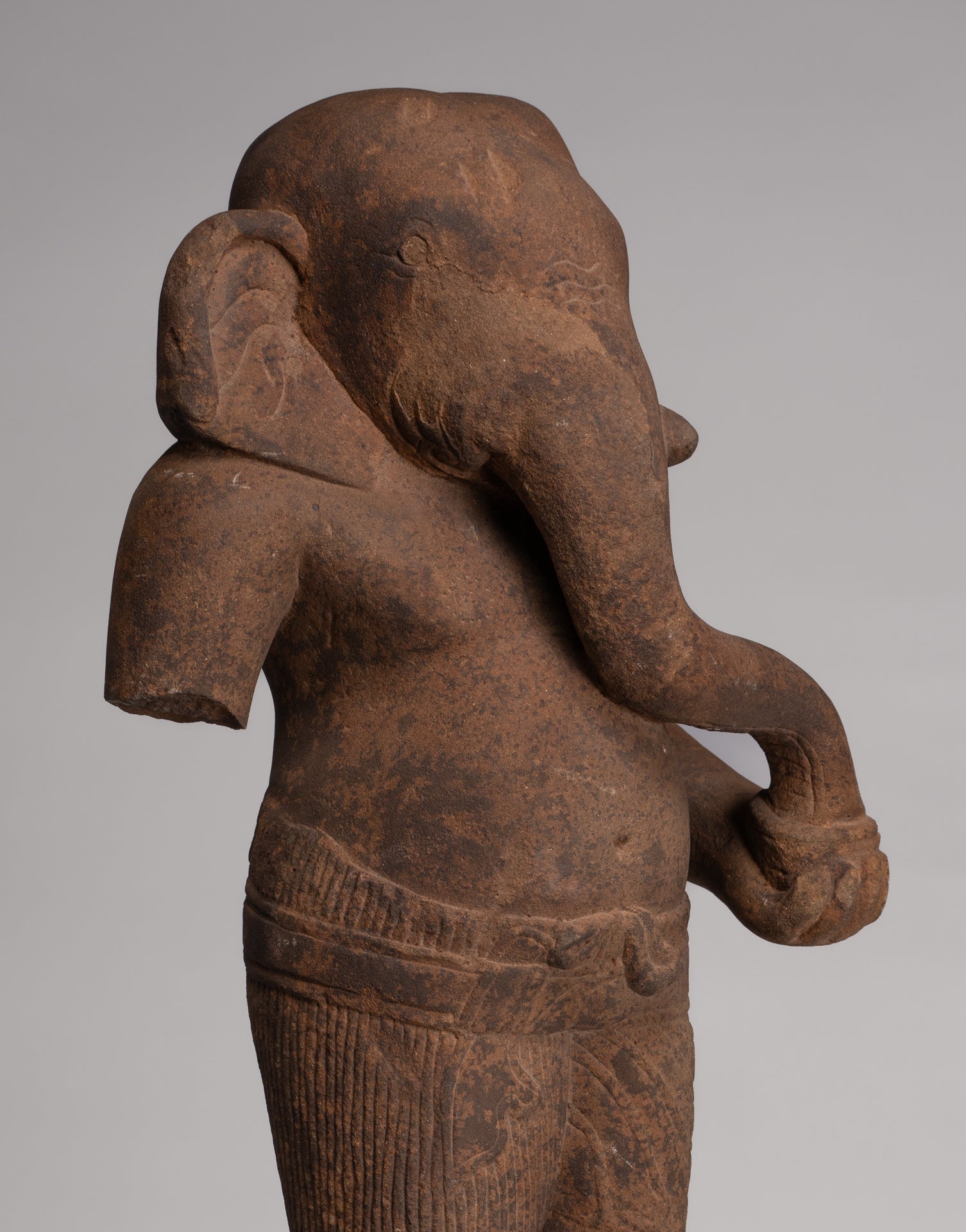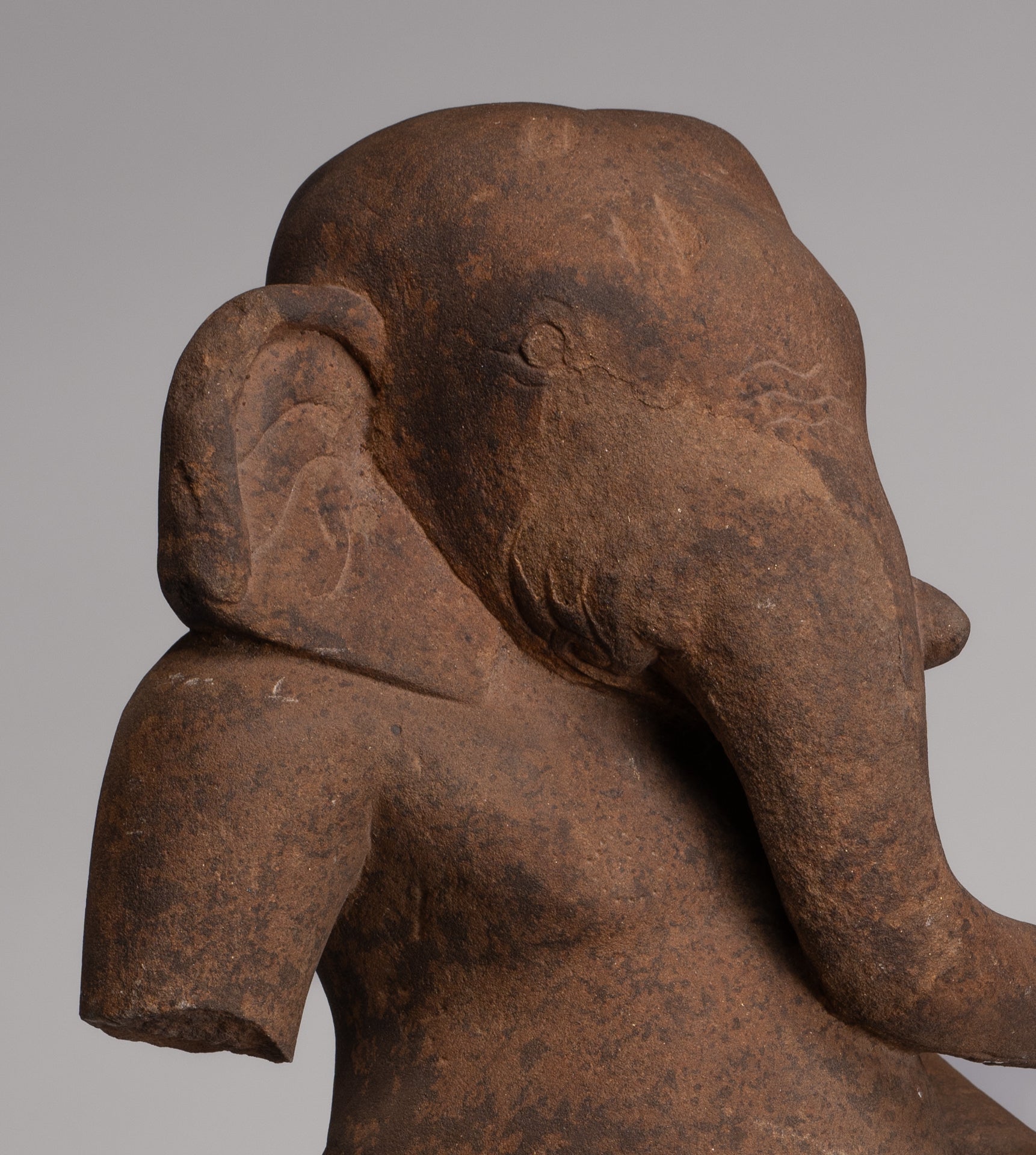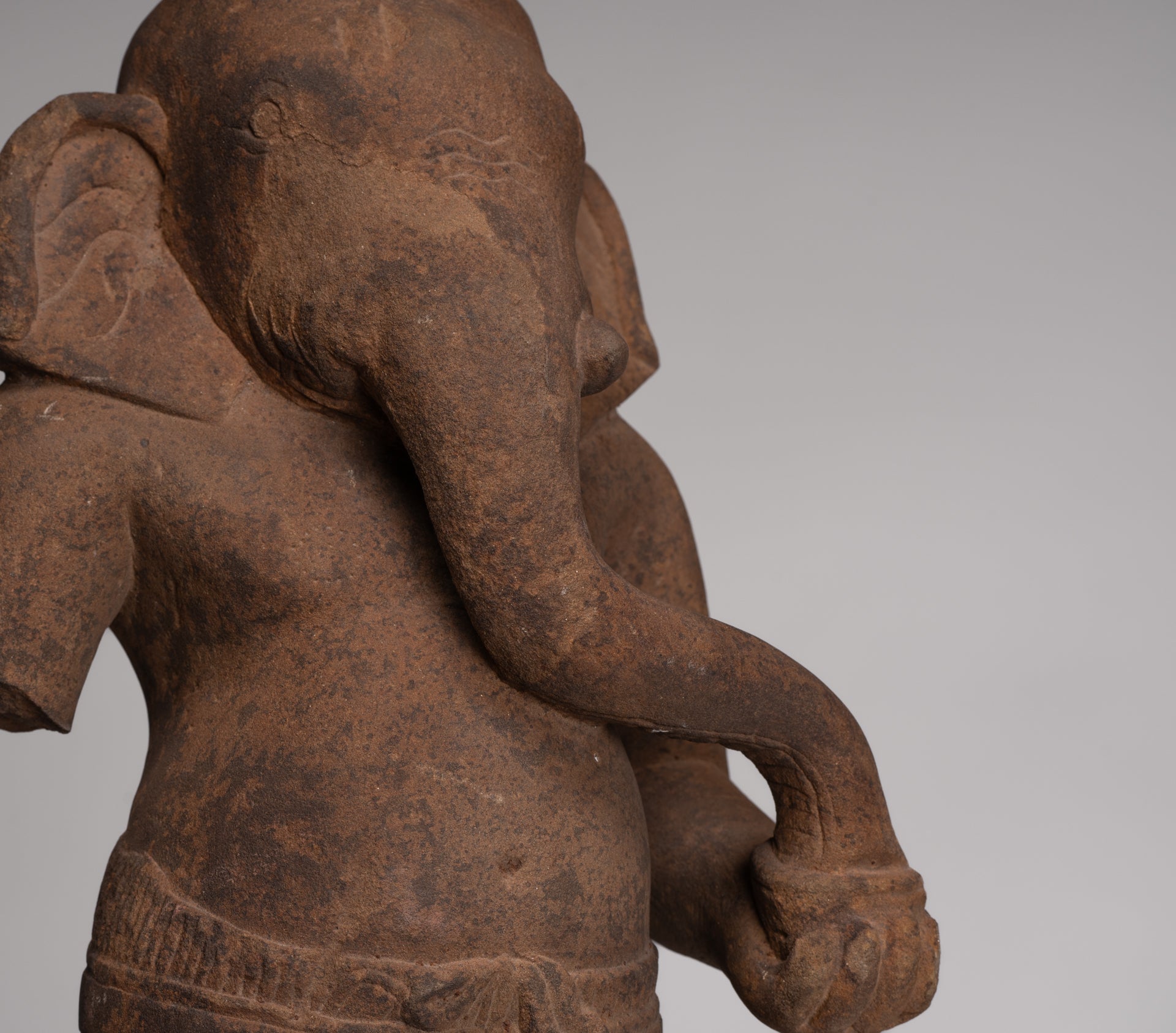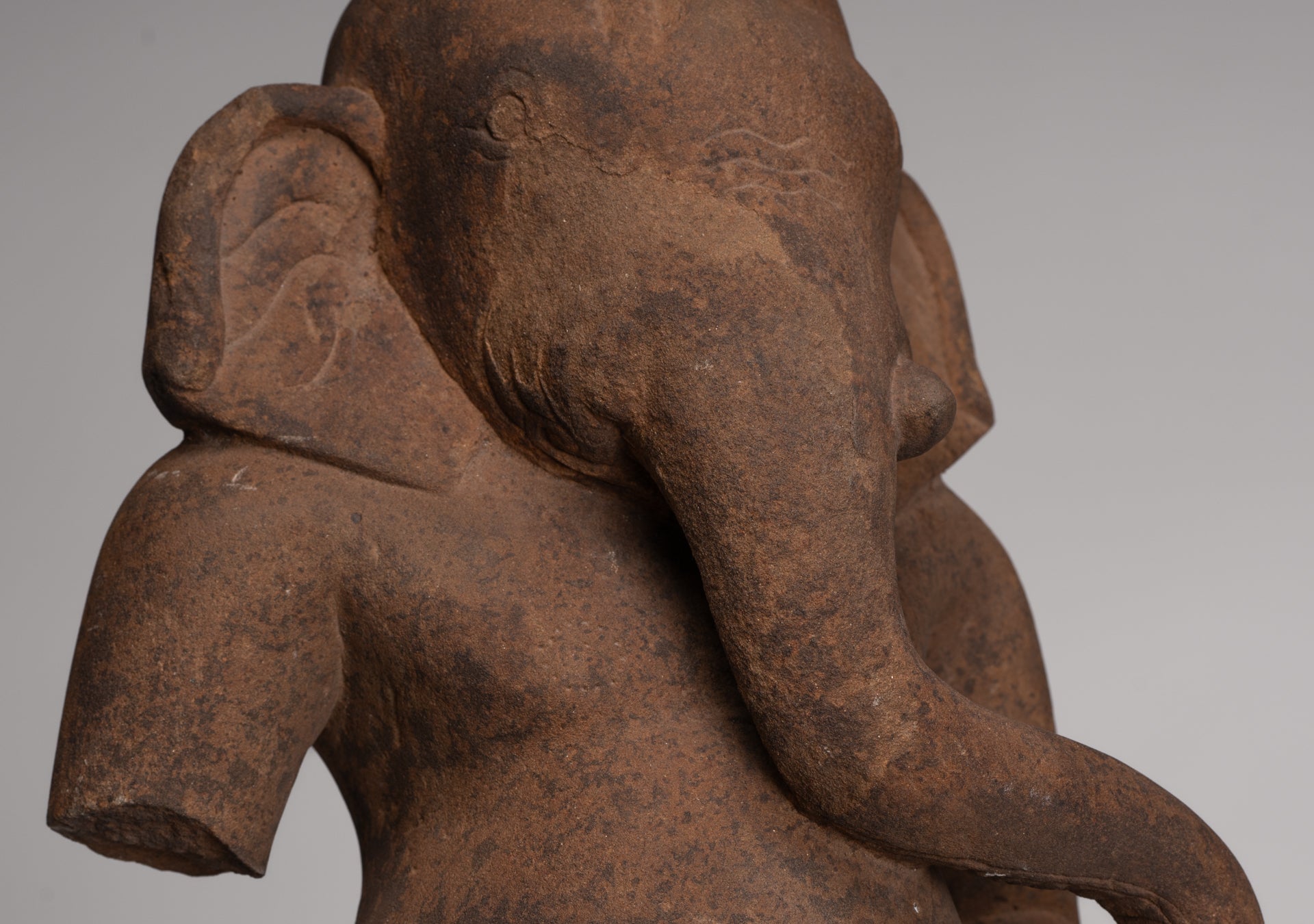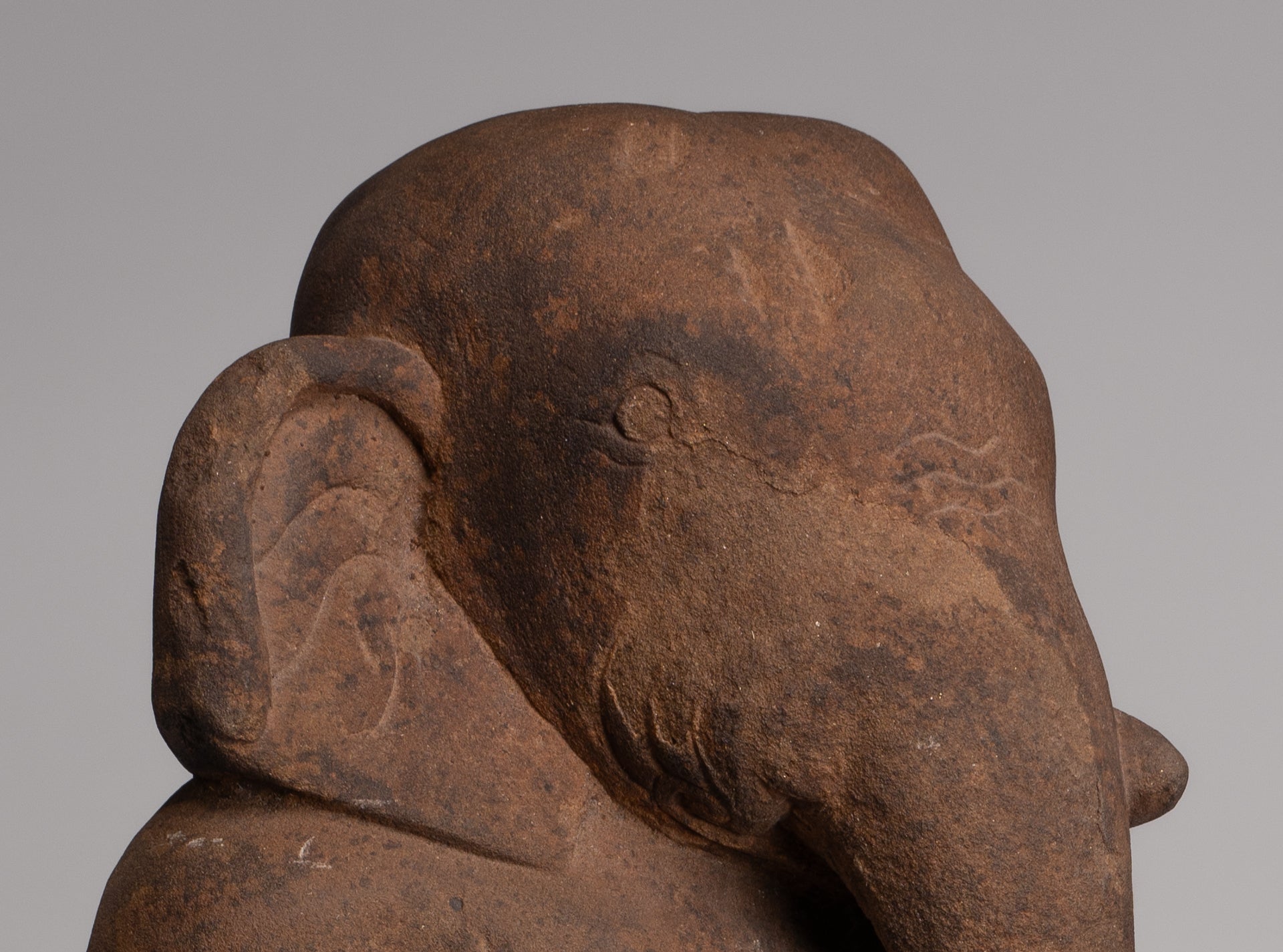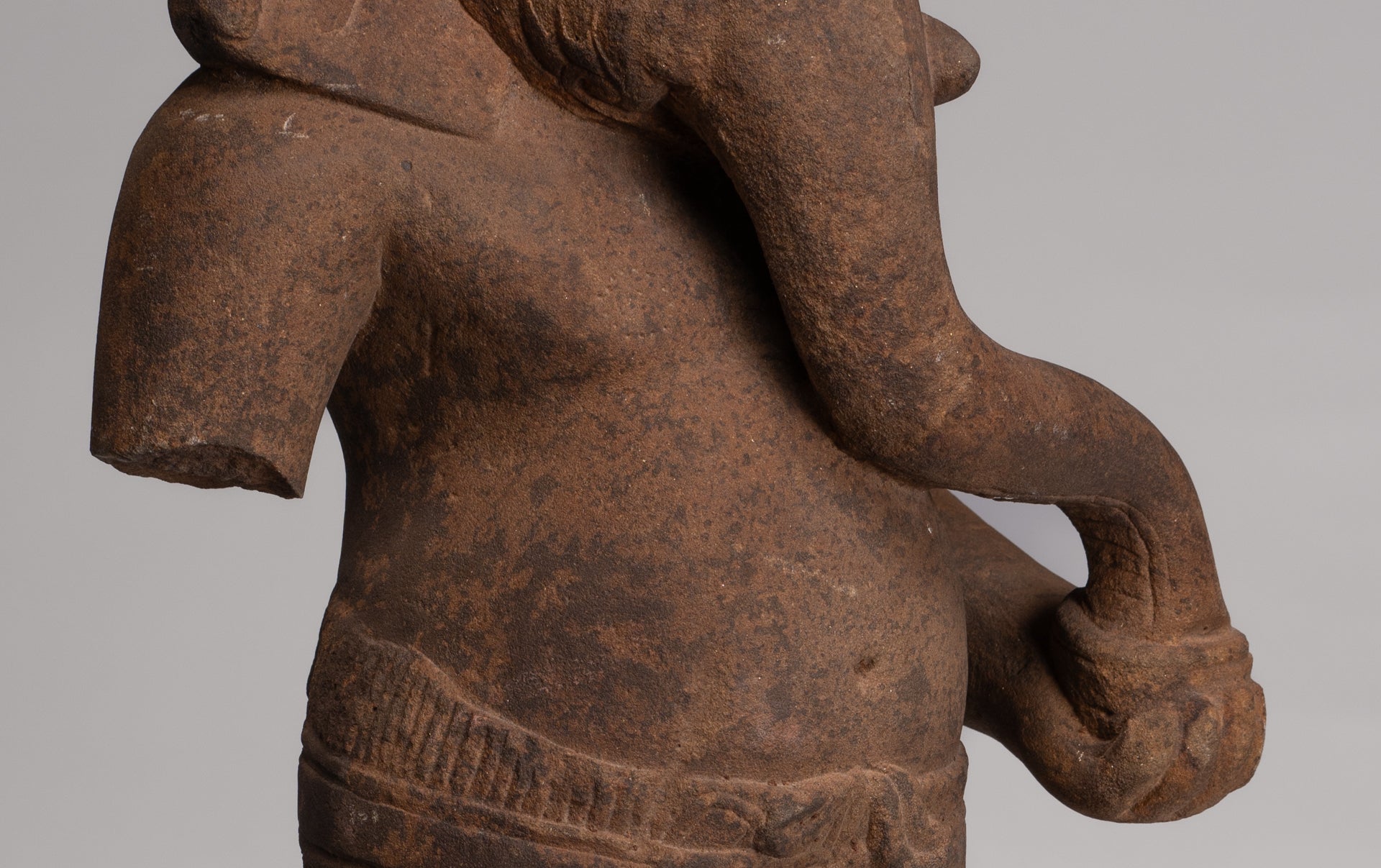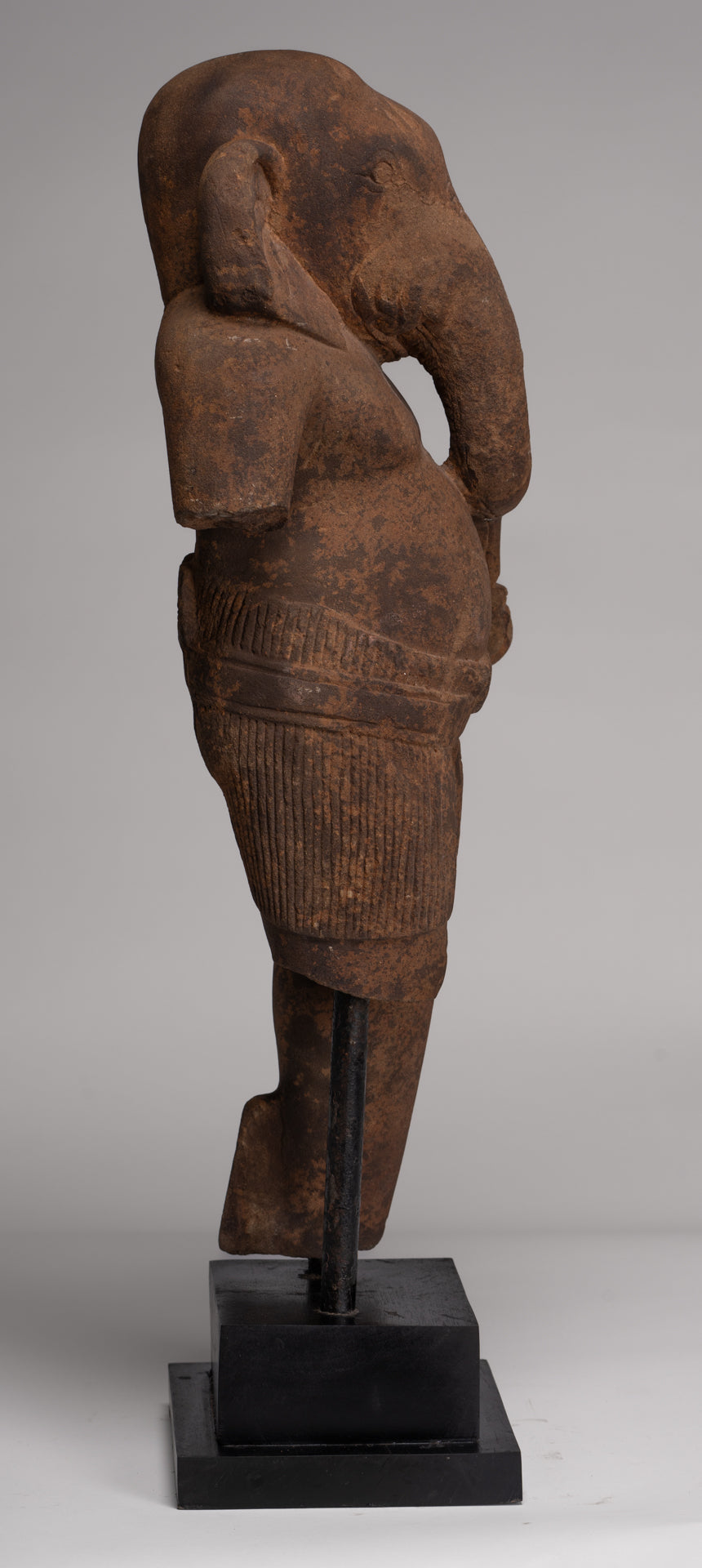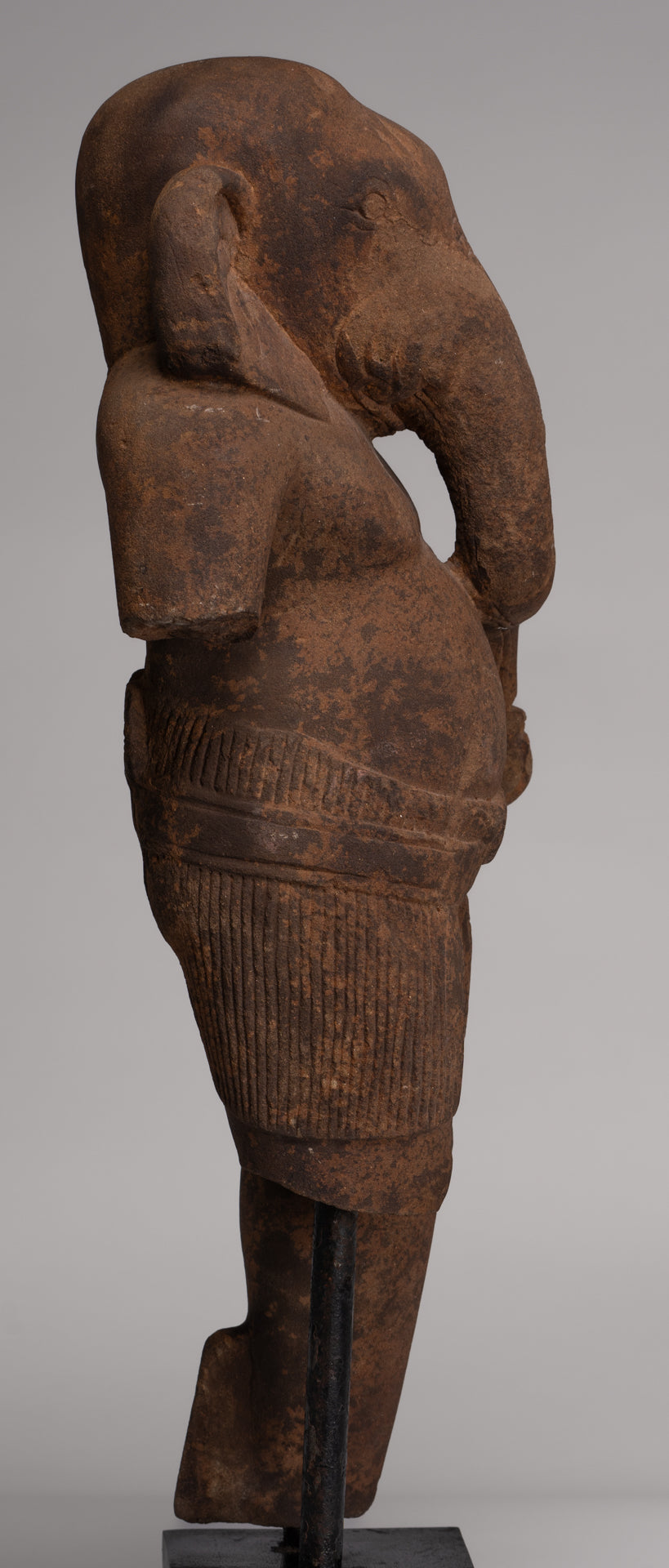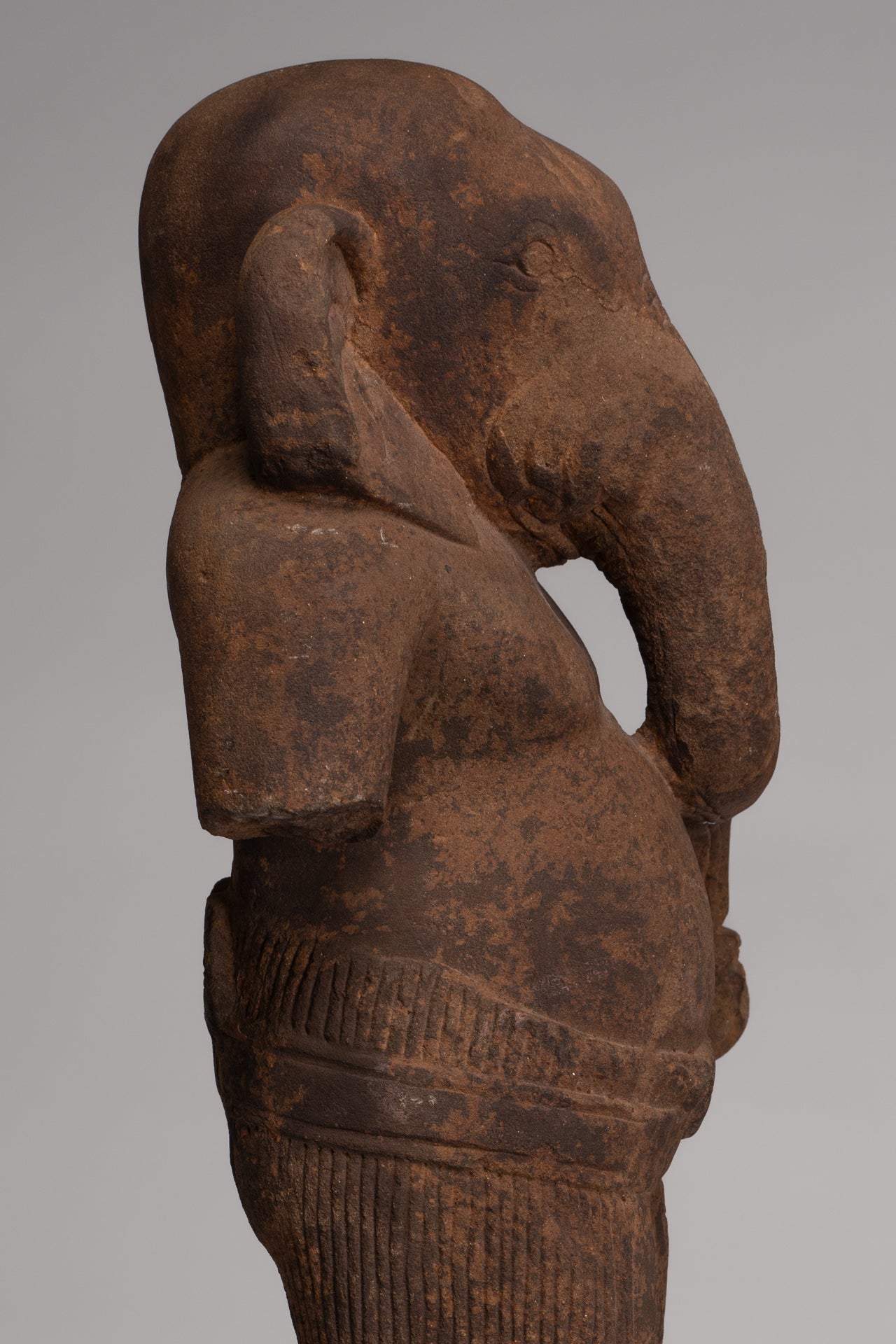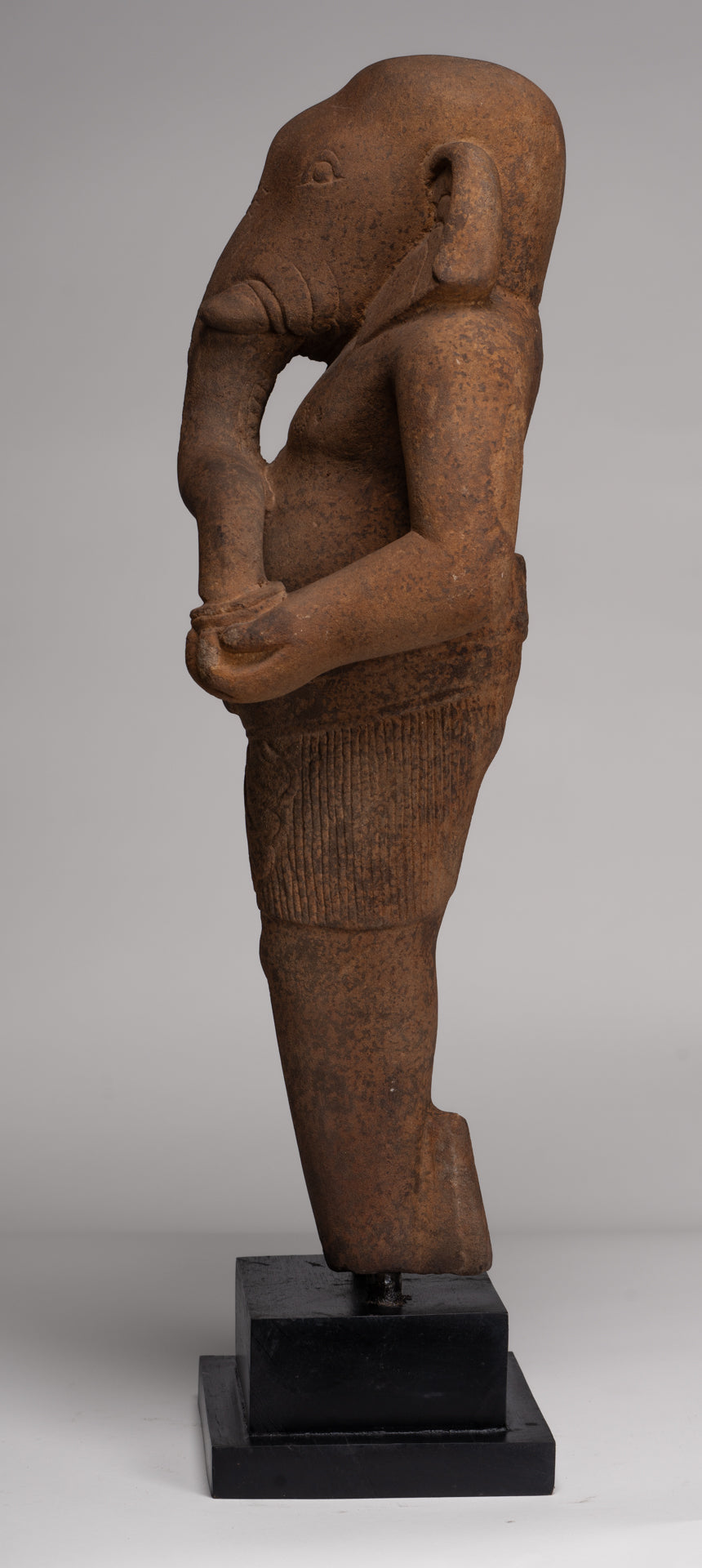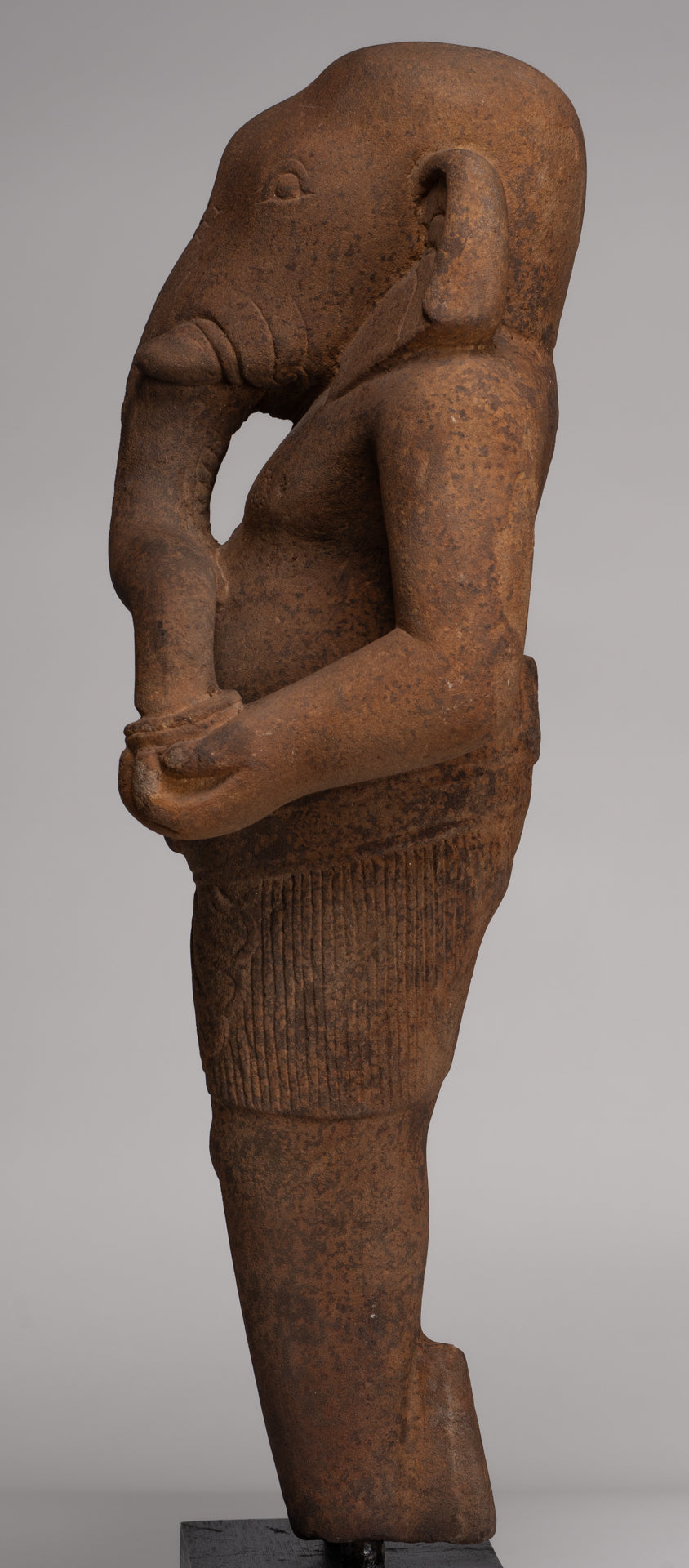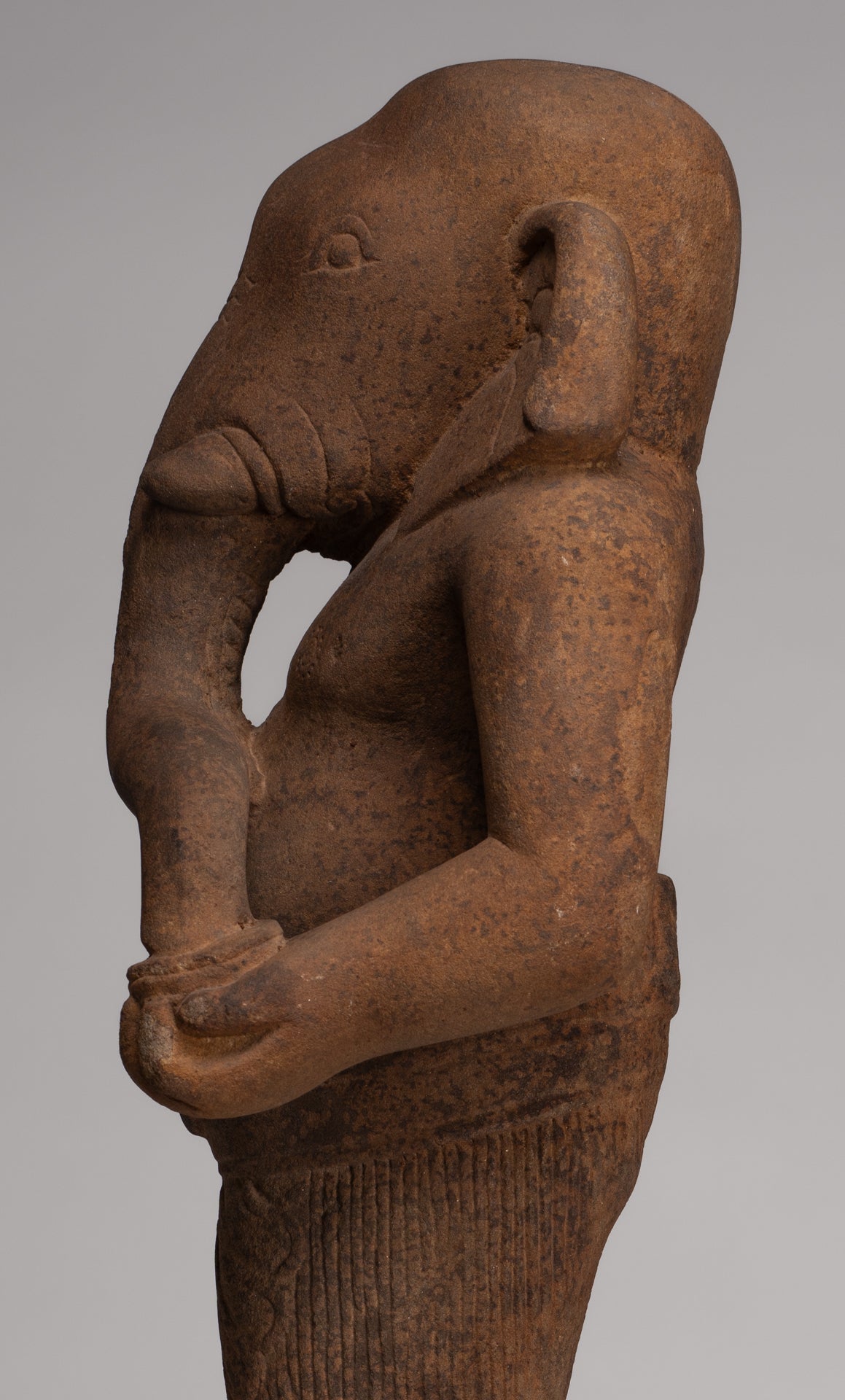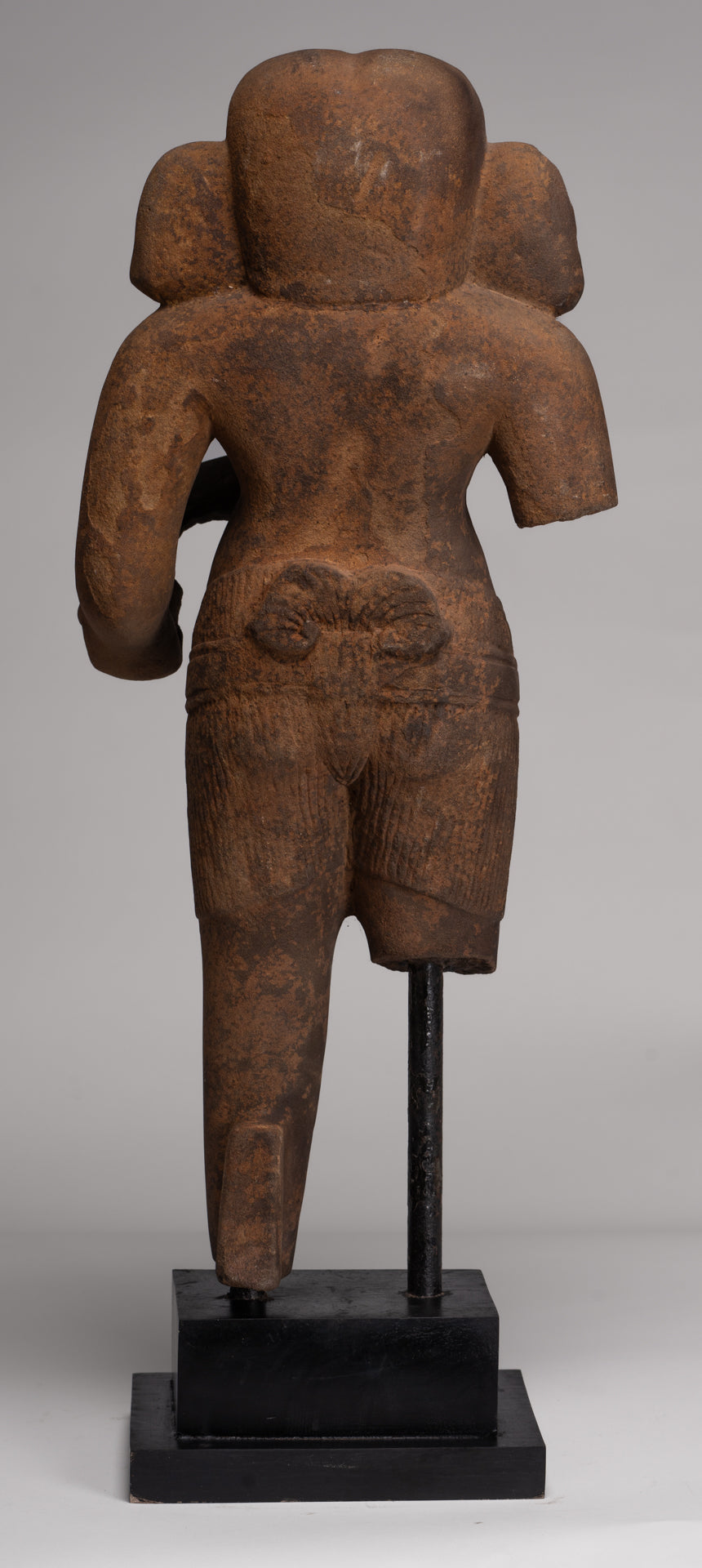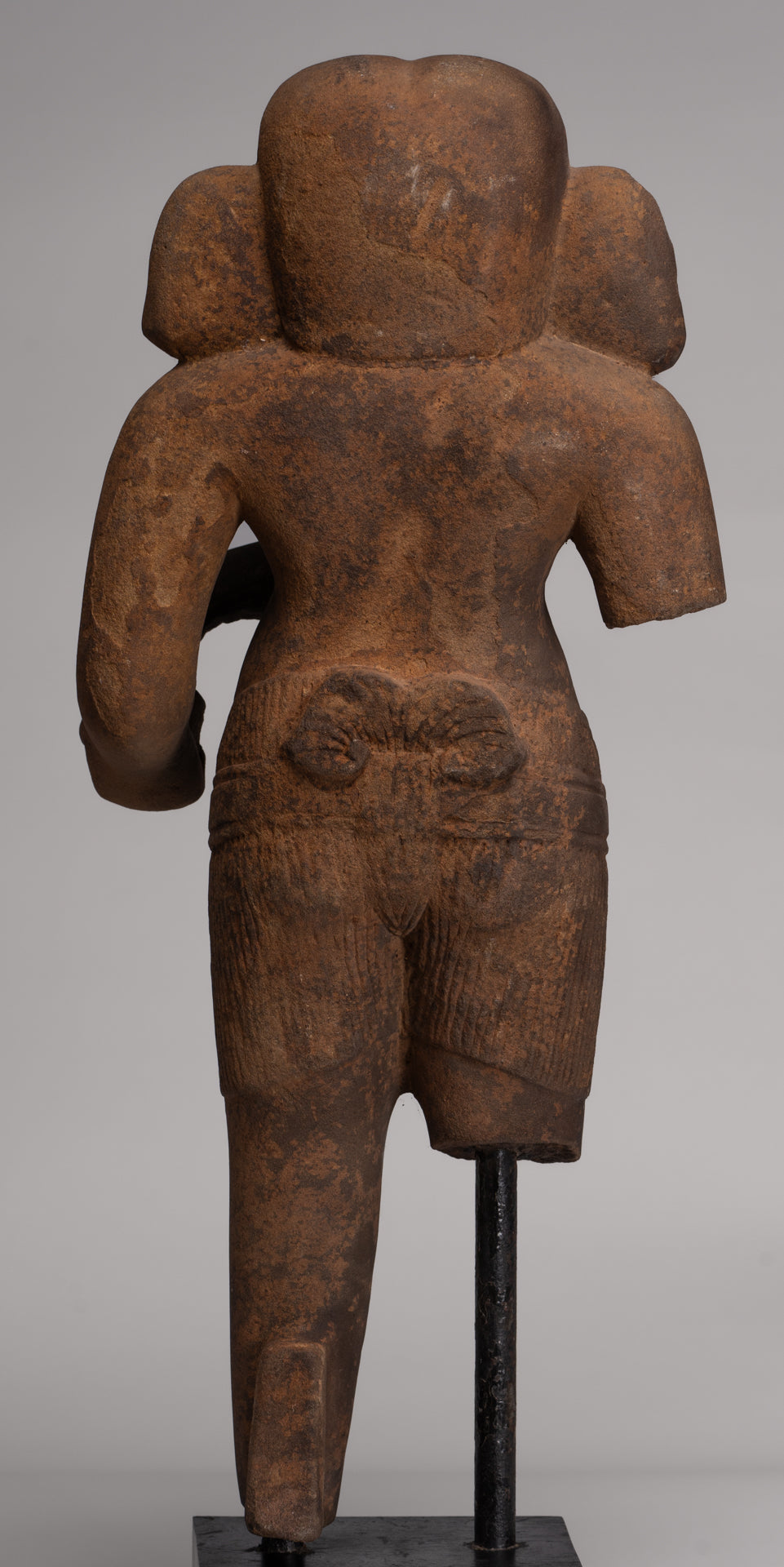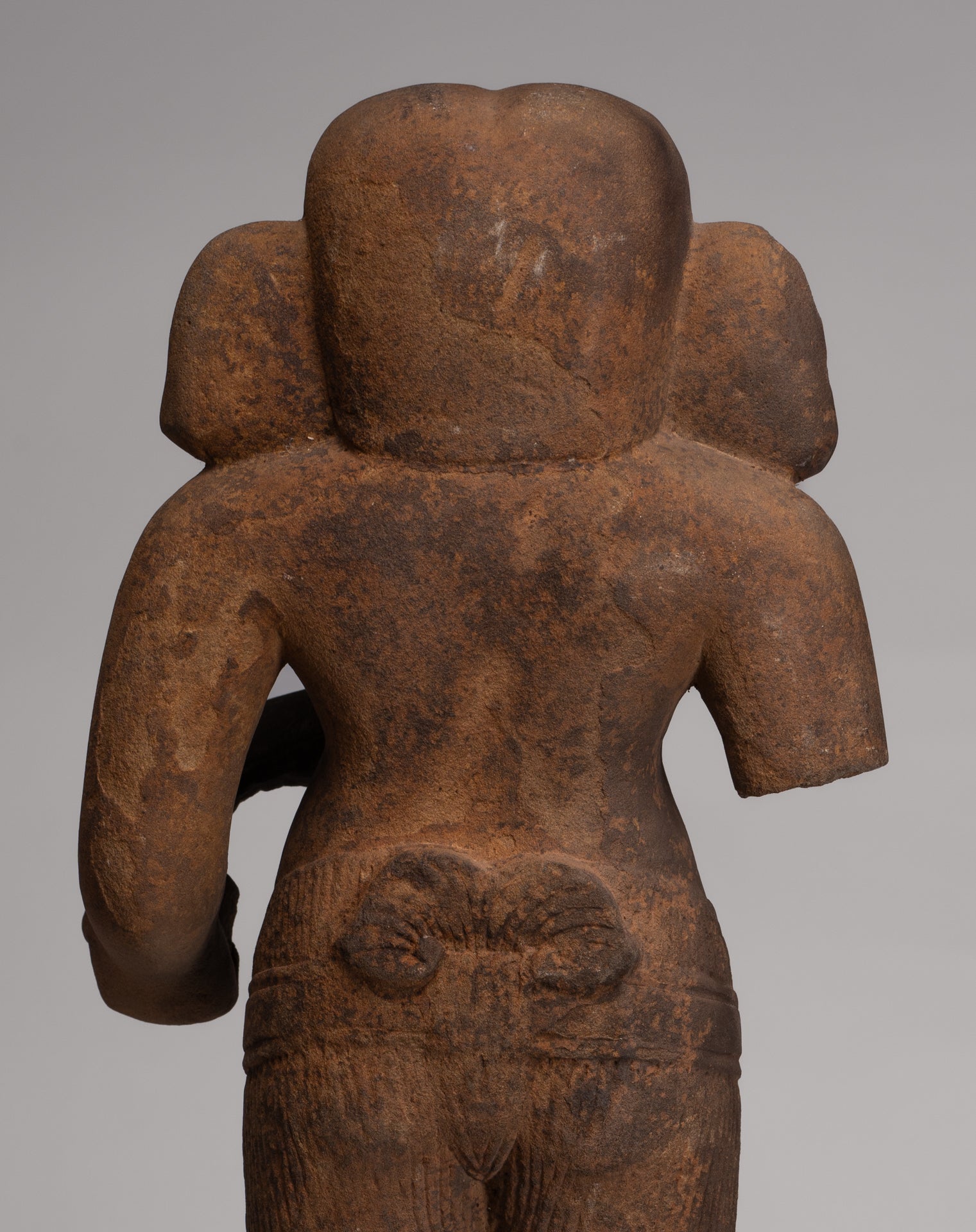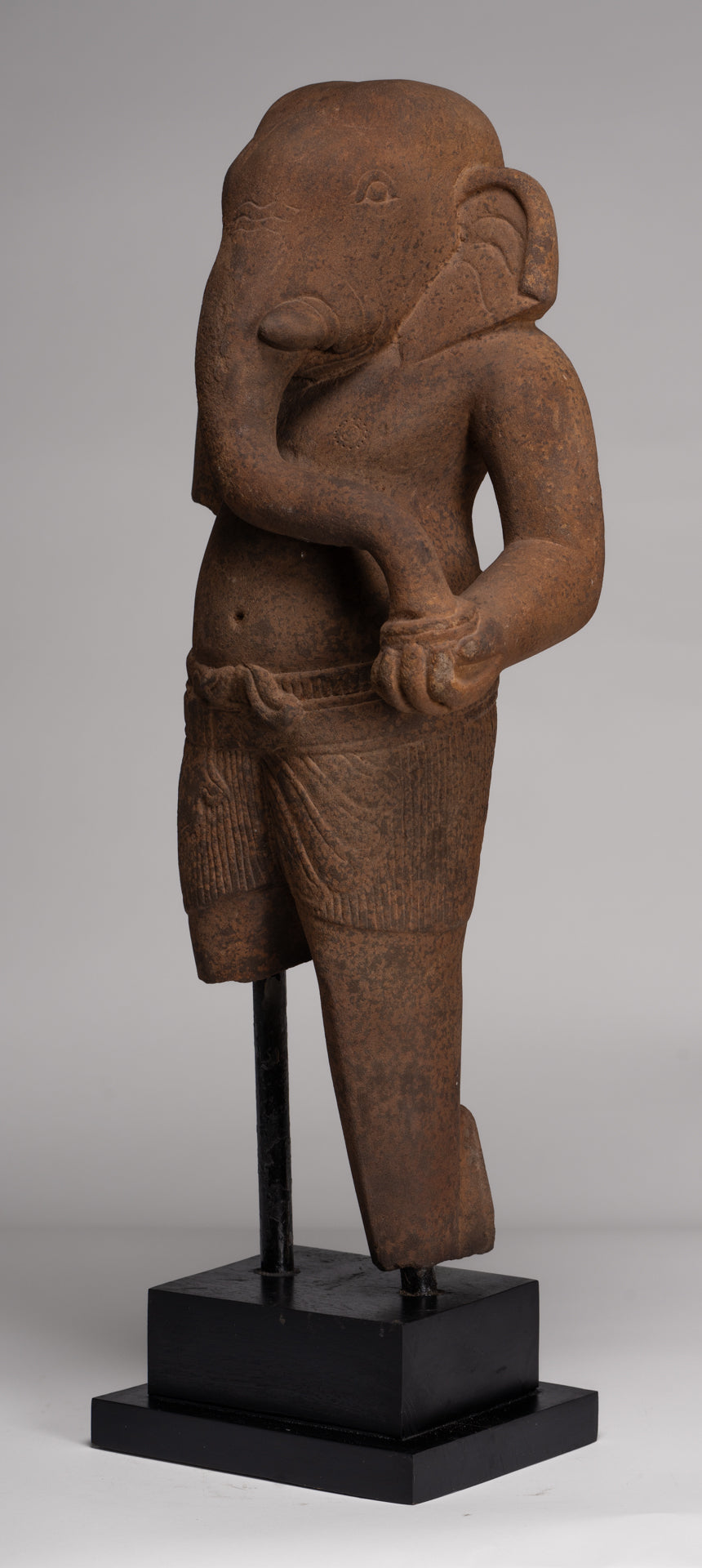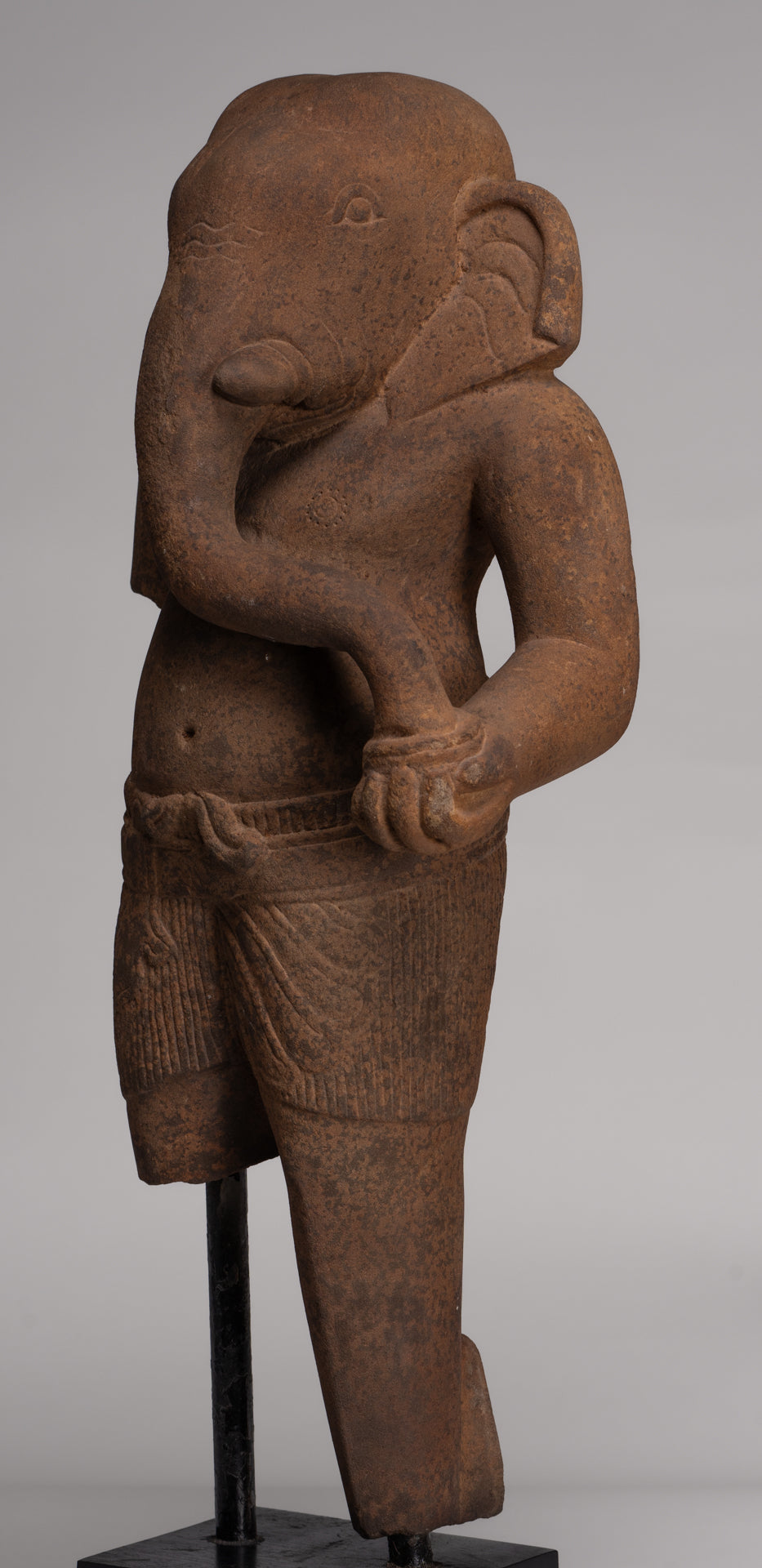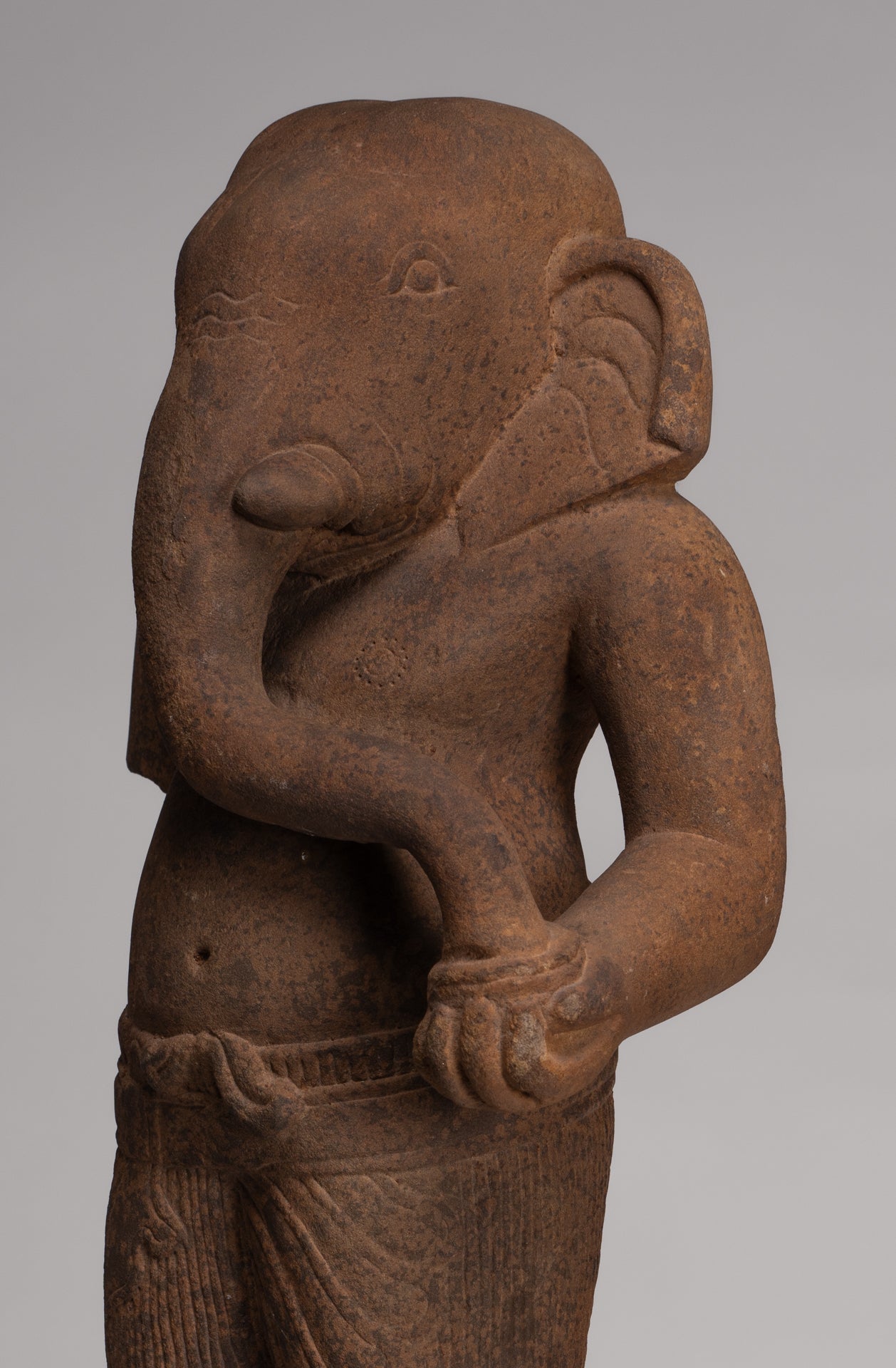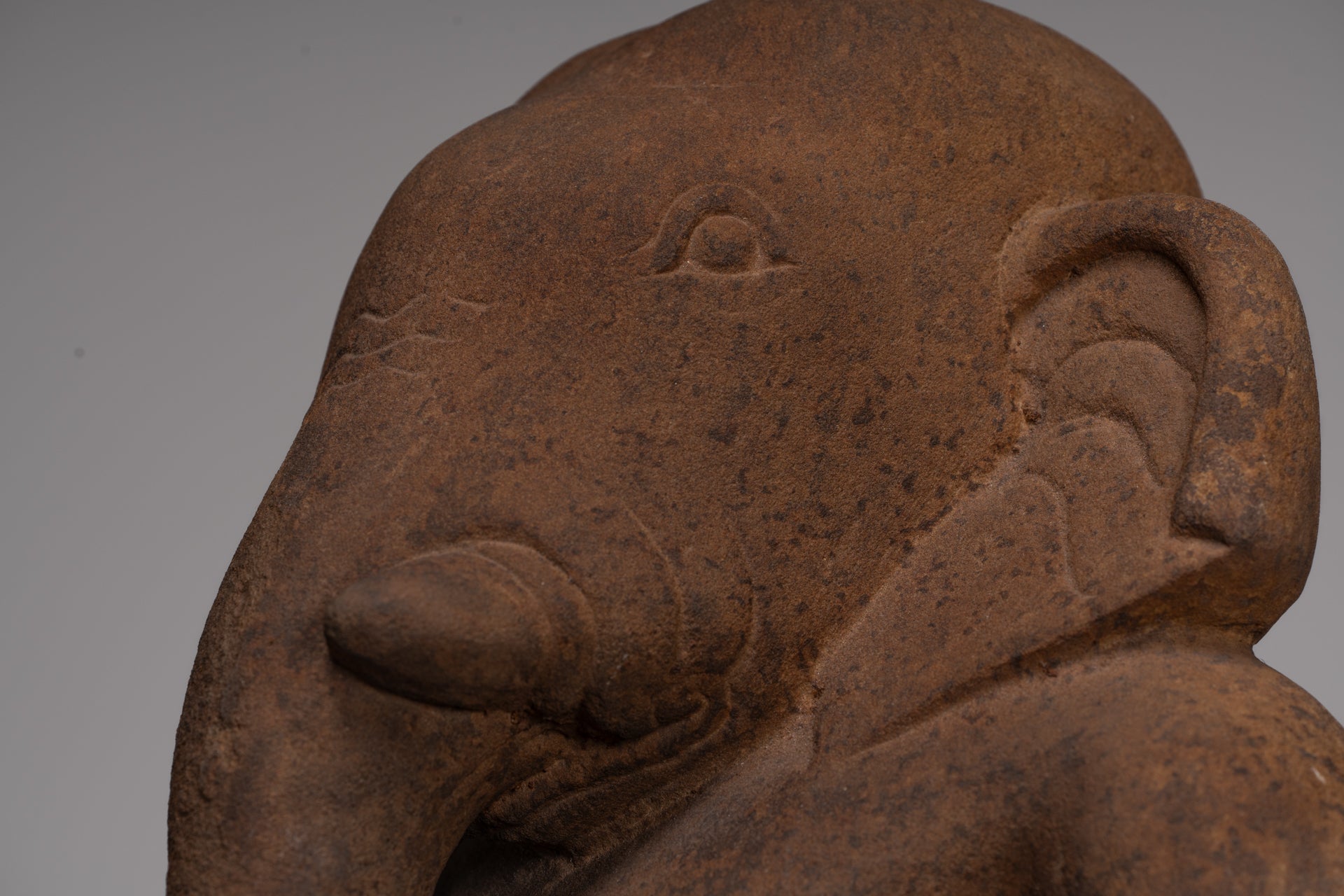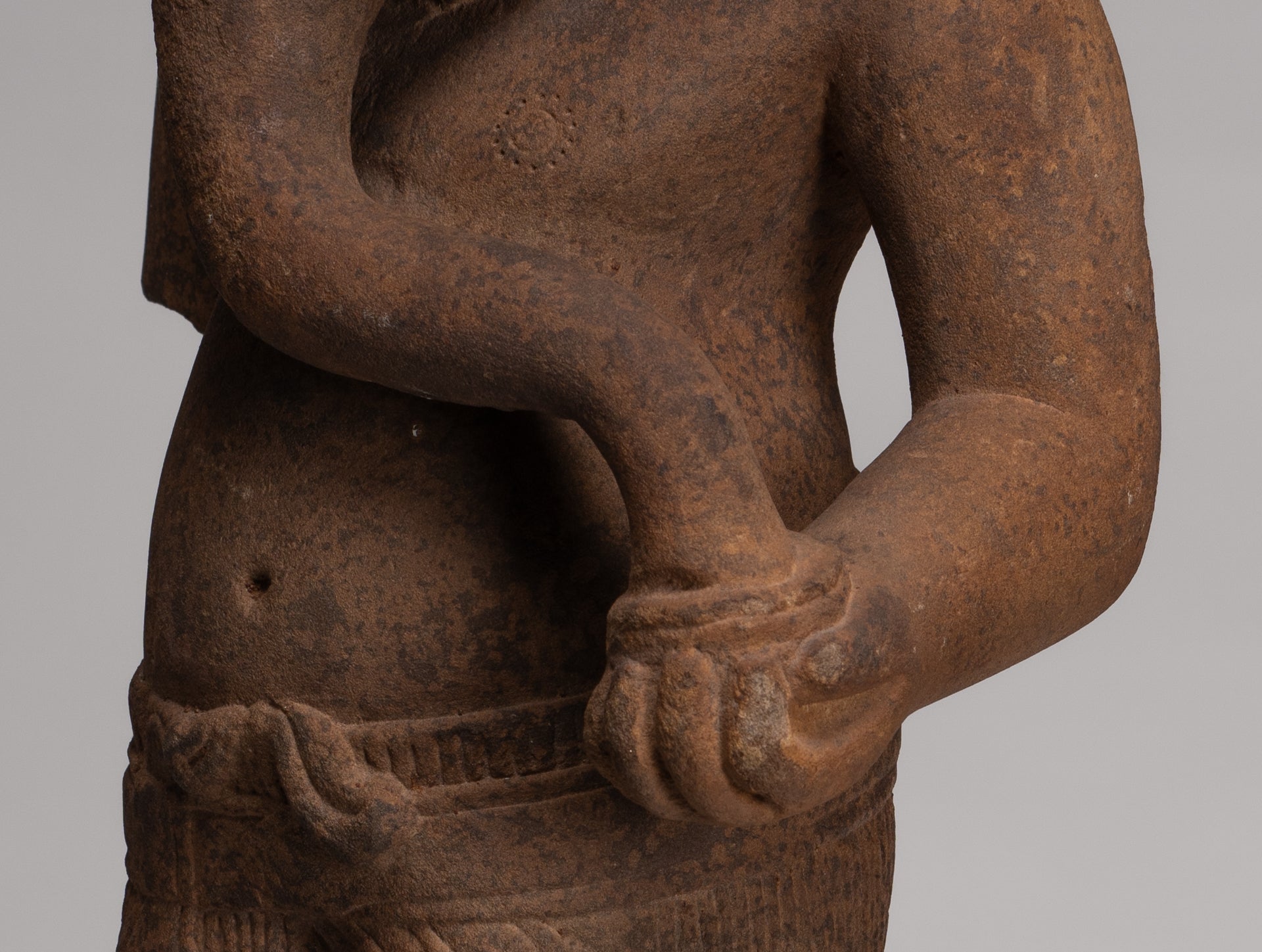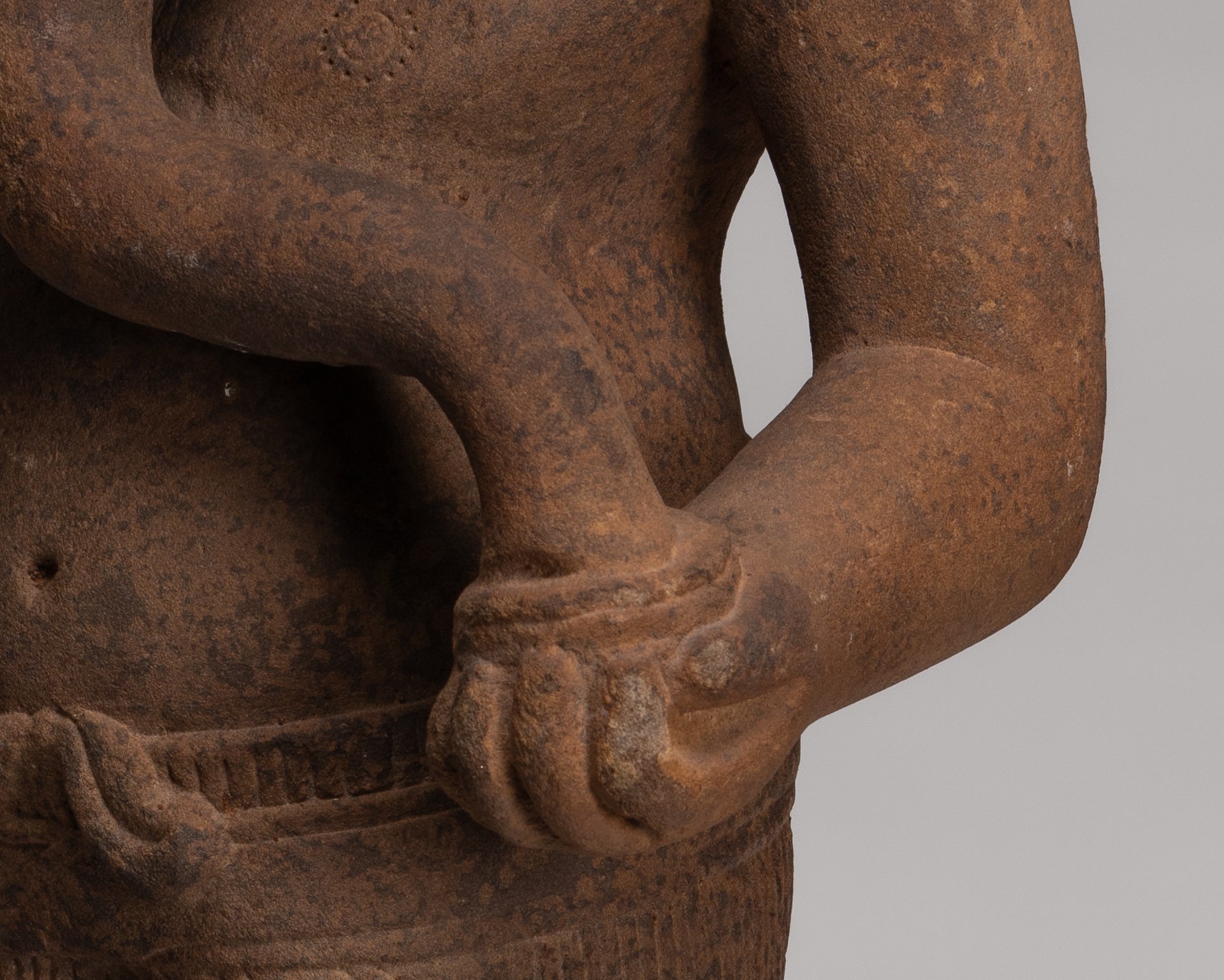-
Antique Khmer Style Stone Baphuon Mounted Ganesha Torso Statue - 66cm/26"
Measures (Height) 66cm/26"
A 11th century Baphuon style sandstone mounted Ganesha torso from Cambodia. This two-armed form of the elephant-headed son of Shiva and Parvati demonstrates the sophistication of Khmer sculptures.
The stone Ganesha stands as a testament to the rich cultural and religious tapestry of Southeast Asia.
Ganesha is represented as the embodiment of the asceticism exemplified by his father. His elephant features are sensitively and naturalistically rendered and blend seamlessly into the anthropomorphic figure beneath. Typical, of 11th century Baphuon style.
Ganesha, the elephant-headed god, is one of the most revered deities in Hinduism. Known as the remover of obstacles, the patron of arts and sciences, and the deity of intellect and wisdom, Ganesha is widely worshipped across various cultures that have adopted Hindu traditions. In Cham art, Ganesha is depicted with the characteristic elephant head, pot-bellied human body, and multiple arms.
The figure is presented as found, elegantly modelled from a solid block of sandstone. As with images from this period, the ornamentation reflects a perfect mastery of sculpting and fluidity. The facial features of the statue retain characteristics of the previous Banteay Srei style, but appear more delicate.
The deity is masterfully modelled in realistic human form, standing in a strong frontal posture mounted on a wood base. Here, Ganesha's torso is clothed in a finely carved short sampot knotted at the waist, bound by a plain belt tied with the end hanging down onto the right thigh, in the Khmer 11th century Baphuon style, standing frontally with squared shoulders and hips. The stone finely polished.
Ganesha is the elephant headed son of Shiva. He holds a bowl of sweetmeats in one hand. In his other hand his broken tusk.
Similar to Krishna Ganesha celebrates life through it's pleasures and beauty. The direction of Ganesha's trunk has symbolic meaning. Here the trunk turns to Ganesha's left. This signifies the direction for success in the world. It is a position associated with grihastas, or householders.
In his early forms in India, Ganesha was associated with fertility. Later he became widely revered as the Remover of Obstacles and more generally as Lord of Beginnings and Lord of Obstacles, patron of arts and sciences and the deity of intellect and wisdom.
The elephant head, with its large ears and trunk, is meticulously detailed, emphasizing Ganesha's wisdom and power.
To aid with safe shipping your Ganesha will be wood crated before shipping. There is no additional cost for this packing, crating and shipping service.
One of the most recognizable of the Asian deities this representation of Ganesha is sure to enlighten your home with endlessly timeless style.
SATISFACTION GUARANTEE - We have been offering SE Asian Art for many years and are proud of the reputation we have developed for fair and honest listings. However, if for any reason, whatsoever, you are unhappy with your purchase please just let us know and we will provide a full refund. We want you to be 100% happy with your purchase.
-
The majority of orders will be shipped with DHL. This is a secure, express and fully tracked service.
Items less than 2Kg we typically ship using Royal Mail.
Once we receive your order we try to ship all orders the same or next working day.
Large and/or fragile pieces requiring palletising, specialist crating and/or extra packaging may take a little longer. Palletised shipments will be delivered curbside.
All orders over 35 GBP will be shipped free of charge.

-
We genuinely hope that all purchases delight.
However, if they do not, regardless of reason, we will refund all orders upon receipt of the unwanted item. Just notify us within 14 days of receiving your order that you wish to make a return and send the piece back to us with 30 days of delivery.
Let Us Help You Find The Piece You Desire
What Our Customers Think
Thank you very much for the well packed statue that we love and looks great in our hall. I hope to be able to add to our collection in the future.
Ernie, Cardiff, Wales
Just wanted to say thank you for the package received today with my small Buddha. It’s absolutely what I wanted and I am very pleased with it.
Helen, Ipswich, UK
Lord Ganesh arrived on thursday. It is a lovely piece of art. I hope he enjoys staying with us.
Alexandra, Frankfurt, Germany


